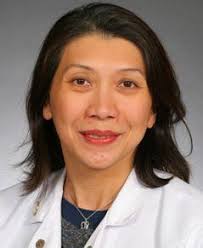For now, it’s life as is for this solo endocrinology practice
In this month's "Endocrine Feedback" column, Dr. Melissa Young explores how her career has evolved over the years and questions what the future may hold.
(©AdobeStock_128480116)

Dr. Young

Throughout my career I’ve had the opportunity to be part of some very different practices. Each one has its merits and I can see how different endocrinologists might gravitate toward one or the other.
During my fellowship training I had four mentors. One was a thyroid expert, another pituitary, and two were specialists in bone and mineral metabolism. I spent a lot of time doing thyroid biopsies, provocative testing and IV bisphosphonate administration. We conducted research and held regular journal club meetings. The majority of our inpatient consults were for pituitary tumors and the occasional thyroid storm. We had maybe one consult a day, but some days none and on a bad day two. We almost never got consulted for inpatient diabetes management, and when we did, my attendings would ask me why. “They are internists. Can’t they manage DKA?”
So, it was quite a culture shock when my first job was primarily inpatient and mostly for diabetes management. I was employed by a university affiliated community hospital and was part of the faculty. We saw few outpatient patients. When I started, on average, we saw 18-20 inpatients in a day and almost exclusively for diabetes management. As the hospital expanded, so did our inpatient consult census so much, that by the time I left, it was not uncommon to have 40 or more patients in the hospital.
In the office, when we weren’t on service, we saw maybe 10-12 patients a day. New patients were seen for an hour, and follow-ups were seen for 30 minutes. As part of the faculty, we were also expected to teach residents and fellows, and we also had to see patients on the general medical service. We were encouraged, but not required, to do research and write papers, but when you are seeing 40 patients a day and teaching, research gets pushed aside. My employers were responsible not only for my salary, but for my benefits including time and funding for continuing medical education, i.e. conferences. I never had to worry about overhead, coverage or vacation time. I also had no control over staffing. It took three years to get an ultrasound machine approved and purchased. It took weeks to get something as simple as a stapler.
After being employed for eight years, I decided it was time to venture off on my own. I opened a solo practice which has been primarily an outpatient practice. I spend most of my day seeing patients in the office, and a large number of them (probably the majority) have diabetes.
I had originally scheduled my days so that I could attend endocrine grand rounds at a nearby teaching hospital. Now, when I say nearby, that means in the neighboring county. It didn’t take long for me to realize that it just wasn’t feasible for me to go up there during rush hour, attend grand rounds, and then drive back in time to see patients and do rounds at the hospital. So, I started going to the nearest hospital’s grand rounds. Over time, that too, unfortunately became impossible. So, I spend my days seeing 20-24 patients in the office and two to four in the hospital. I am responsible not only for my own benefits but those of my staff. I have to research and purchase whatever we need for the office-everything from computers to toilet paper. I have to find and fund medical education on my own, and since it’s hard to take time off, I often do it online.
I know that there are many other types of practices: Solo, small groups and multi-specialty. Some endocrinologists choose to focus on either thyroid cancer, or pituitary disease or another niche. There are cash only practices, and concierge and hybrid practices. Each has its own nuances. There is a place for everyone. Right now, I am comfortable where I am. I continue to think about the future and what the next chapter of my career will bring. Will I stay independent? Will I let a bigger healthcare system buy me out? Will I choose to be employed again? Maybe do inpatient only? Or, maybe start a concierge practice. We will see. Much depends on how the healthcare system changes, where my children eventually end up (they are currently in high school), and what my retirement plans become. For now, I’ve grown accustomed to life as is.
ABOUT THE AUTHOR
Dr. Young is an endocrinologist in Freehold, N.J.